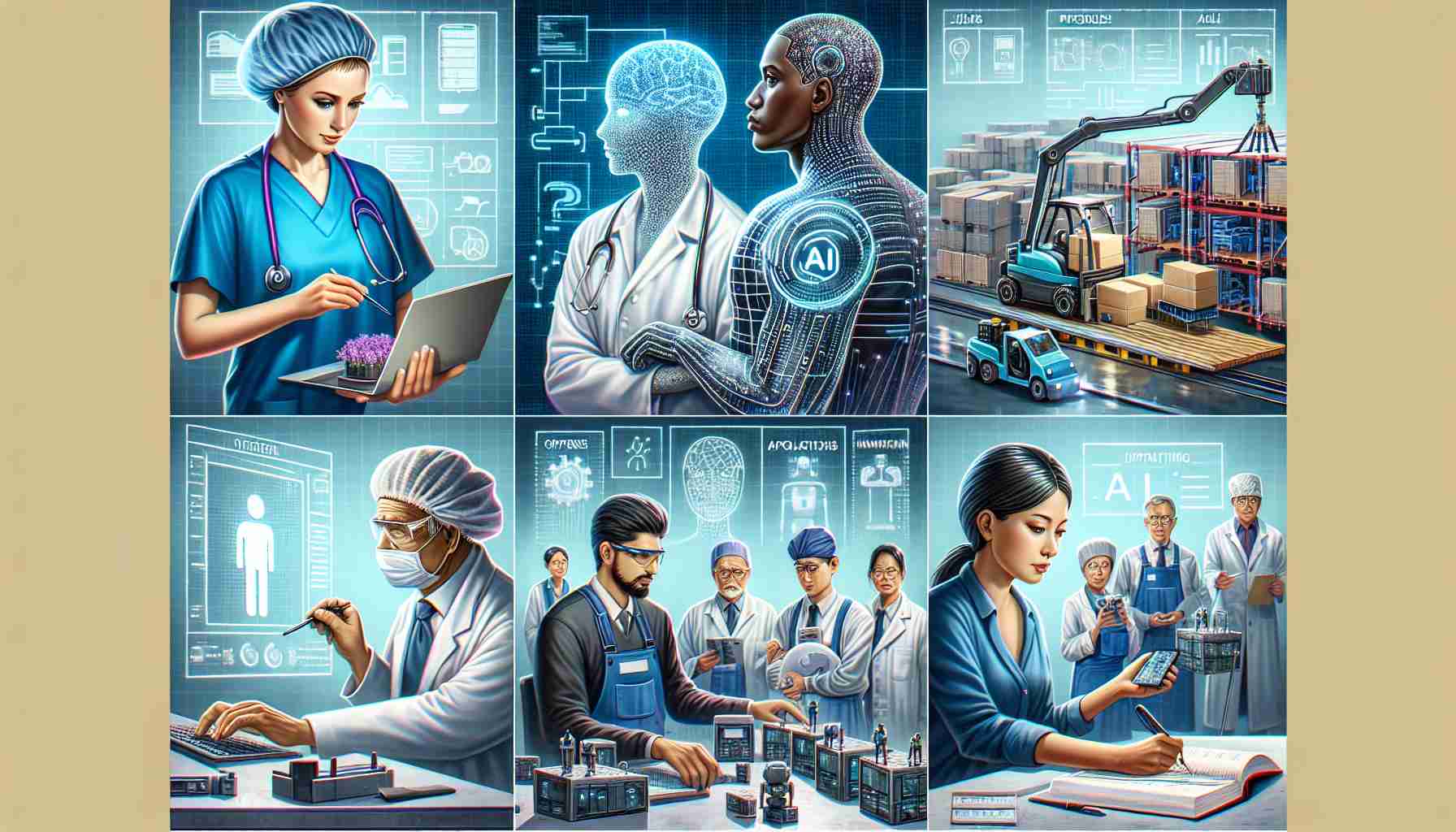The introduction of ChatGPT and other artificial intelligence (AI) technologies has undeniably had a profound impact on the world. While many are excited about the possibilities and benefits AI brings, there is also apprehension and concern about the potential negative consequences. One of the primary worries is the fear of job loss and being replaced by machines.
AI represents the culmination of a rich history of technological advancements that have established computer technology as the cornerstone of the modern era. From Alvin Toffler’s predictions in the 1970s to the Industrial Revolution, these advancements have shaped and transformed societies on multiple occasions.
AI brings a wealth of opportunities and challenges. It has the potential to address societal issues like healthcare, environmental monitoring, and poverty reduction. By automating repetitive tasks, AI can increase productivity and efficiency while creating higher-skilled, better-paying jobs. However, it’s essential to acknowledge the challenges and potential negative aspects of AI as well.
Automation and AI may lead to certain job displacement, particularly for roles involving mundane manual or repetitive tasks. However, the belief that AI will cause extensive job losses is exaggerated. In many cases, AI will serve as an auxiliary tool, augmenting workers’ capabilities rather than replacing them entirely. Similar to how ultrasound enhanced the capabilities of medical doctors without replacing them, AI can enhance various professions.
The integration of AI into the labor market will result in the upgrading and development of new professions. While ethical concerns such as algorithmic bias and invasion of privacy need to be addressed, the responsible deployment of AI can serve humanity for the common good. Instead of fearing technology, we should focus on using AI responsibly and creating policies that ensure its positive use.
It’s crucial for societies, businesses, and policymakers to proactively address the challenges posed by AI. This includes fostering education and re-skilling initiatives that empower individuals to adapt to the changing job landscape. Striking a balance between economic and social considerations in AI integration is essential.
In conclusion, the impact of AI on the workforce is complex. Rather than causing abrupt and extensive job loss, AI’s integration will likely happen gradually. As we navigate this transformation, it is crucial to embrace the opportunities it presents while addressing the concerns responsibly.
FAQ Section: AI and its Impact on the Workforce
Q: What is the concern surrounding AI and job loss?
A: The primary worry is that AI technologies, such as ChatGPT, may lead to job displacement and the replacement of human workers with machines.
Q: How has computer technology evolved over time?
A: Computer technology has gone through significant advancements, with AI representing the culmination of these developments. It has shaped and transformed societies on multiple occasions.
Q: What are the opportunities and challenges of AI?
A: AI has the potential to address societal issues like healthcare, environmental monitoring, and poverty reduction. It can increase productivity, efficiency, and create higher-skilled jobs. However, there are also challenges and potential negative aspects to consider.
Q: Will AI cause extensive job losses?
A: The belief that AI will cause widespread job losses is exaggerated. In many cases, AI will complement human workers, enhancing their capabilities rather than replacing them entirely.
Q: How can AI enhance various professions?
A: Similar to how ultrasound technology enhanced the capabilities of medical doctors without replacing them, AI can enhance various professions. It can serve as an auxiliary tool to augment human skills.
Q: What ethical concerns should be addressed in AI deployment?
A: Ethical concerns such as algorithmic bias and invasion of privacy need to be addressed when deploying AI. Responsible usage and the creation of policies that ensure positive use are vital.
Q: How can AI integration be approached responsibly?
A: Societies, businesses, and policymakers need to proactively address the challenges posed by AI. This includes fostering education and re-skilling initiatives to empower individuals to adapt to the changing job landscape. Striking a balance between economic and social considerations is crucial in AI integration.
Q: Will AI cause abrupt and extensive job loss?
A: The integration of AI into the workforce is expected to happen gradually, rather than causing abrupt and extensive job loss. It is important to navigate this transformation by embracing the opportunities while addressing concerns responsibly.
Definitions:
– AI: Artificial Intelligence, the simulation of human intelligence in machines that can perform tasks requiring human-like intelligence.
– Automation: The use of technology, such as AI, to perform tasks or processes with minimal human intervention.
– Algorithmic Bias: The tendency of AI systems to discriminate or show unfair treatment based on certain characteristics, due to biased algorithms or training data.
– Invasion of Privacy: Unauthorized intrusion into an individual’s personal information or private affairs.
Suggested Related Links:
– World Bank – Artificial Intelligence
– White House – Artificial Intelligence
– CIO – What is Artificial Intelligence?
The source of the article is from the blog qhubo.com.ni

